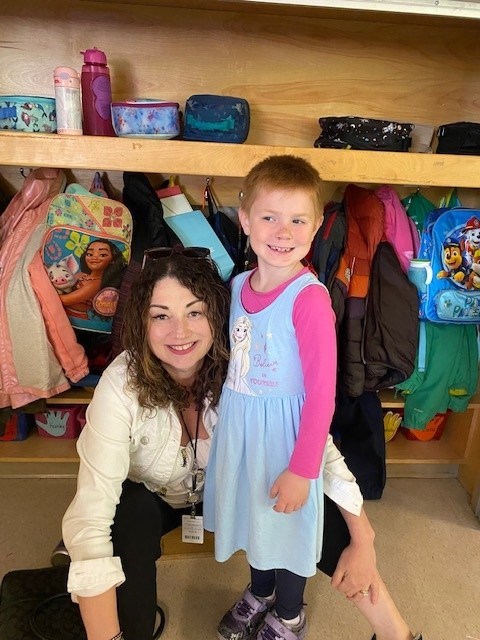Student Support Q&A Series: District Behaviour Specialists

The district’s Student Support staff play a significant role in the lives of many of our students and their success both in school and in life.
To recognize their important work and provide a greater understanding, the district is diving deeper into their roles and responsibilities and highlighting the positive impact they have on students and families every day. Today, we’re showcasing Sonja Radmilovic, who shares her passion for working with students as a district behaviour specialist (DBS).
Please explain what you do in your role as a District Behaviour Specialist. Feel free to provide examples if it helps simplify.
School staff reach out to the DBS team via collaboration requests and student referrals. We review it with the school team or referring person, going over the student’s challenging behaviour and life experiences (family, community, school, psychological, medical), the interventions tried, any data collected, reports and assessments, the students file, their strengths and the environments and circumstances when the student does well.
I then do an observation. Sometimes, I end up supporting the student during a challenging situation, which is a great opportunity to model. I review my observations and any recommendations and strategies with the teacher, counsellor, principal and/or support staff (other people are often included). Recommendations typically include universal classroom supports, individual strategies and supports, family support and next steps. Also, I may complete additional assessments with the school team to help the development of a positive behaviour plan.
District Behaviour Specialists help the school-based team develop a plan, then the school puts the plan in place. They may collect some data for later review of the plan. They also liaise with external agencies, advocating for students and families to get support.
A big part of the role is to support the district programs, their development, review program efficacy, mentor staff in these programs and transition students in and out of the programs. In addition, the DBS staff support staff and students in these district programs.
How do you see your work impact the students you work with?
The work I do supports students in multiple ways. Firstly, I help educators by modelling in the classroom how to connect and redirect students or respond in a crisis. I advocate for students with challenging behaviour by developing realistic plans that take into consideration the principals of behaviour change. I believe the work I do provides hope and support to the staff, which then positively impacts the students.
Sometimes the impact is right away, other times it is like planting a seed that will later bloom under the appropriate conditions. Often, the challenging behaviour decreases, which makes the student, the family and the school staff feel more effective and more peaceful.
In my work, I highlight the importance of developing a relationship and connection with the student, as students won’t learn from someone who doesn’t understand them or like them. Students need to feel connected, regulated and safe to learn.
What do you find most rewarding and/or what inspires you in your day-to-day work?
I have the best job! It is so diverse, interesting, and it requires ongoing professional growth, development and reflection. I enjoy working alongside educators who are passionate and flexible and open-minded. Educators are the unsung heroes in the lives of students and families, especially during the pandemic! I am so honoured to work with them, students and families.
The DBS team is an extraordinary group of people that I have the honour of working alongside.


